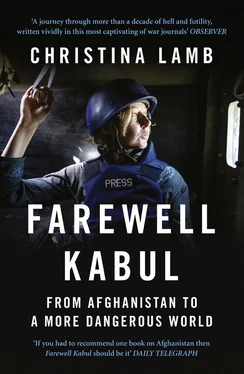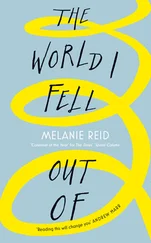The Americans had their man. The only problem was convincing the Afghans. Francesc Vendrell, the Deputy Special UN Envoy, describes the astonishment of the delegates when they sat around the big round table for the opening session and saw a microphone hanging down. They were even more surprised when they were told, ‘Now we will hear from someone inside Afghanistan.’ It was Karzai, speaking from Uruzgan. He told me later, ‘I was in a mud hut of two rooms and had a cold. I don’t know what I said. I never figured I’d be President.’ The line from the satellite phone was not great, but in a way the crackling added to the atmospherics, as he made an impassioned plea for people to set aside their differences for the sake of the nation. ‘This meeting is the path towards salvation,’ he said.
Dobbins thought the most capable figures were from the Northern Alliance, such as the leader of its delegation, Yunus Qanuni, a small, elegantly dressed man with a slight limp. But the Pashtuns would never accept one of them. One Pashtun delegate, Abdul Haq’s brother Haji Qadir, had already walked out, claiming Pashtuns were under-represented.
It was agreed then that the Rome group would choose the new leader. Supported by the Italians and some of the other Europeans, they really wanted the former King as head of state, but were persuaded by the Americans that he would not be acceptable. So they proposed Professor Abdul Sattar Siarat, an Islamic scholar who had been Justice Minister in the King’s last government thirty years earlier. When it came to a vote, Siarat was the clear winner with eleven, compared to two for Karzai.
Siarat was not a Pashtun but an Uzbek, who made up less than 10 per cent of the population, and Dobbins worried that he would not get people to rally round him, nor be able to command respect from Northern Alliance warlords. But while he found none of the Afghan delegates very enthusiastic about Siarat, no one would speak out. Even Qanuni said he could not object to Siarat, as he was a respected figure and his cousin by marriage.
In the end Francesc Vendrell had to call the King in Rome and persuade him to convey to his delegation that ‘rather than an Afghan of their choosing he was asking them for a Pashtun of their choosing’.4 Siarat was so unhappy about the decision that he locked himself in his room, while another of their delegation, Hedayat Amin Arsala, walked out.
The chairman of the conference, Asadullah Wasifi, was furious, even though Karzai was his nephew and had studied with his son Izzatullah in Simla. ‘We elected Siarat but the Americans told me, “No, we want to bring a Pashtun.” I asked, “What kind of democracy is that, where we elect the man you want?” Then Khalilzad came to me and said, “What’s the problem? He’s your brother’s son!” I said, “Yes, he is, that’s why I know he won’t be able to run the country.”5
He refused to sign the document, pointing out that Karzai had never run anything. The only post he had ever held was as Deputy Foreign Minister in the ill-fated mujaheddin government which took power in 1992 after ousting the communists then quickly started fighting each other. Karzai only lasted eighteen months before having to flee to Pakistan, helped by Hekmatyar, putting him in the warlord’s debt.
When Karzai later asked Wasifi why he hadn’t accepted him, he replied, ‘Afghanistan is a big problem and you’re too small.’
The next challenge was persuading Rabbani to step aside. The Northern Alliance leader refused to allow his delegation to submit names of candidates for posts in the interim administration. Instead he called a press conference in Kabul, and announced that Afghanistan should hold direct elections for an interim council rather than abide by the decisions made at Bonn.
The Americans were terrified that the Northern Alliance would pull out of the discussions, and then it would be impossible to organise another meeting. Dobbins called Secretary of State Colin Powell to ask his advice. The answer was unequivocal. ‘Do not let them break up!’ he was told. ‘Keep them there; lock them up if you have to!’
Powell asked Russia, which had a close relationship with the Northern Alliance, to persuade Rabbani not to break up the conference. According to Dr Abdullah, the Russians ‘passed on a message that the world expects an agreement’, and warned that the Northern Alliance ‘shouldn’t expect that without an agreement [Russian] support … can continue’.6
The Iranians also played a key role. To his surprise, throughout the conference Dobbins found himself working closely with them, meeting the leader of their delegation, Jay Zarif, every morning for coffee and cakes to discuss developments.
Under such concerted pressure, the younger members of the Northern Alliance decided to mutiny and continue to participate in the Bonn Conference with or without the support of Rabbani. A strategic American rocket landing near Rabbani’s house may have helped.
Even so, Northern Alliance participation came at a price. They demanded three quarters of the cabinet, including the most powerful portfolios of defence, interior and foreign, as well as control of the intelligence. Finally, after a late-night session with the Americans, Indians, Russians and Iranians, the Northern Alliance agreed a deal, with the Iranians once again playing a critical role. There would be twenty-nine ministries, far more than Afghanistan needed, of which sixteen would go to the Northern Alliance. Two women were included. The King would get the meaningless title of ‘Father of the Nation’, and convene the loya jirga the following year.
The other main argument was over who would provide security for Kabul. The Northern Alliance wanted an all-Afghan force. Others feared that a Northern Alliance-led force would carry out the same kind of abuses that had occurred after the jihadis took power in 1992, which led to the emergence of the Taliban. A small multinational force under the auspices of the UN was agreed.
Thorny issues like disarming warlords were left unresolved – proceedings needed to wrap up by dawn on 6 December so the dentists could move in.
At the time the rapidly approved administration was hailed as a ‘diplomatic miracle’. The West had its military success, dismantling the Taliban regime in two months, and now it had a West-friendly interim government to replace it. Brahimi would later admit: ‘The deal was reached hastily, by people who did not adequately represent all key constituencies in Afghanistan, and it ignored some core political issues.’7
When Amerine and his men got the news that Karzai had been named interim leader of Afghanistan they were astonished. Up until then Amerine had no idea how important Karzai was – which was not surprising, as most Afghans had never heard of him. He was glad he hadn’t known. ‘If I’d been told he’s the future leader of the country, how do I put the guy in a convoy and try to make my way to Kandahar with three hundred guys?’
By then they were less than thirty miles from Kandahar. But they would never make it. The day after retaking the ‘Alamo’ hill a team of American reinforcements from headquarters flew in, this time equipped with their own trucks. They immediately started calling in airstrikes on a cave a couple of miles away which they thought might be a hiding place for Taliban.
They also brought welcome cargo – care packages from home, though not for the recently divorced Amerine. The men were on the ridge of the Alamo, reading their letters and enjoying Rice Krispies bars while Bari Gul and some of the Afghans watched the explosions, by then accustomed to the idea that these Americans could call down fire from the sky on their enemies. Amerine was sitting twenty yards away, discussing the battle plan for Kandahar with one of the staff officers who had flown in, when suddenly there was an almighty blinding flash. Amerine was tossed through the air. ‘I knew the only thing it could be,’ he said. ‘We’d been hit by our own bomb.’
Читать дальше












